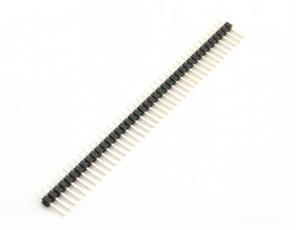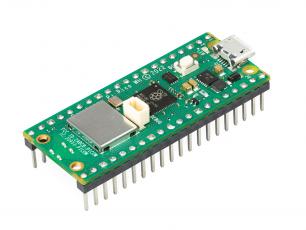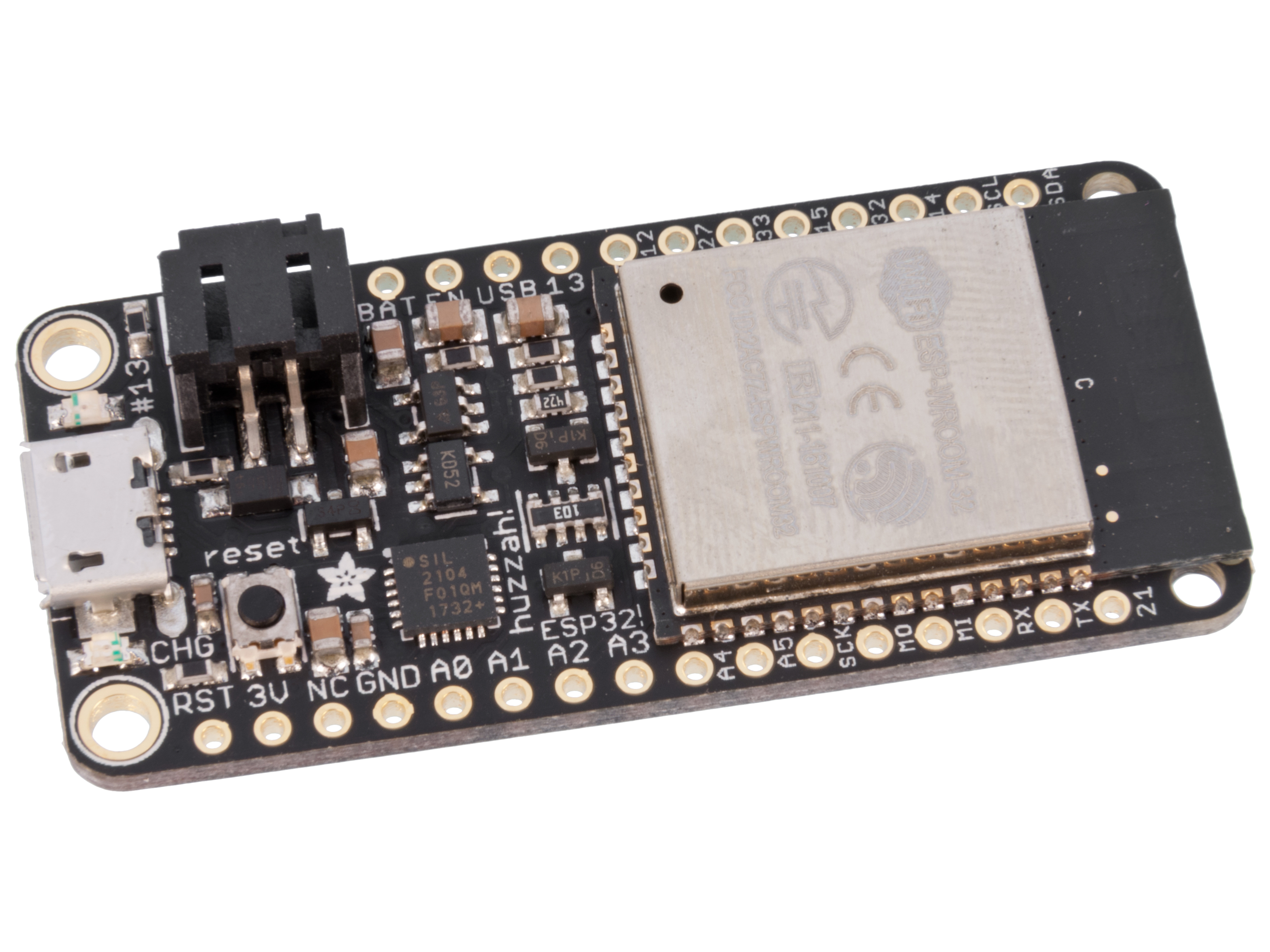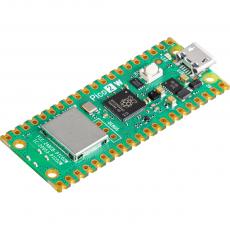Product description
If you're ready to step your Arduino game up from older 8-bit/16MHz microcontrollers, the SparkFun SAMD21 Mini Breakout is a great landing spot. The SAMD21 Mini Breakout is a Pro Mini-sized breakout for the Atmel ATSAMD21G18, a 32-bit ARM Cortex-M0+ processor with 256KB flash, 32KB SRAM, and an operating speed of up to 48MHz. This mini breakout provides you with an Arduino hardware option that solves the problems of low storage limits and dynamic memory stack overflows that have plagued the previous iterations of the Arduino family. Yes, the SparkFun SAMD21 Mini Breakout is even fully supported in the Arduino IDE and libraries for the Arduino Zero!
The SparkFun SAMD21 Mini Breakout has been equipped with a USB interface for programming and power, surrounded with an RTC crystal, and a 600mA 3.3V regulator. By utilizing the Pro R3's extra PCB real-estate we've been able to leave room for a few extra GPIO pins. We've pinned the Mini Breakout to match - as much as possible - our faithful Pro Mini and Pro Micro. The I/O and voltage rails are all broken out to a pair of breadboard-compatible headers. Power can be supplied, and the board can be programmed, through the micro-B USB connector.
One of the most unique features of the SAMD21 is SERCOM - a set of six configurable serial interfaces that can be turned into either a UART, I2C master, I2C slave, SPI master, or SPI slave. Each SERCOM provides for a lot of flexibility: the ports can be multiplexed, giving you a choice of which task each pin is assigned.
The on-line SAMD21 Mini/Dev Breakout Hookup Guide (in the Documents section below) contains step by step instructions of how to connect your SparkFun SAMD21 Mini Breakout as well as a few circuit examples to test out. Full example code is provided and explained and even includes troubleshooting tips to make make you have zero problems.
Note: The breakout does NOT have headers installed and will need to purchased and soldered on yourself. Check the Recommended Products section below for the type of headers we use in the Hookup Guide!
Features:
ATSAMD21G18 32-bit/48MHz ARM Cortex-M0+
256KB Flash Memory
32KB SRAM
32KB of EEPROM (emulated in Flash)
22 GPIO Count
14 ADC Channels at 12-bit Resolution
Analog-to-Digital and Digital-to-Analog Converters (ADC & DAC)
RAW: 3.5V-6.0V
VCC: 600mA @3.3V
Pro Mini/Micro Layout
Integrated USB Controller
The SparkFun SAMD21 Mini Breakout has been equipped with a USB interface for programming and power, surrounded with an RTC crystal, and a 600mA 3.3V regulator. By utilizing the Pro R3's extra PCB real-estate we've been able to leave room for a few extra GPIO pins. We've pinned the Mini Breakout to match - as much as possible - our faithful Pro Mini and Pro Micro. The I/O and voltage rails are all broken out to a pair of breadboard-compatible headers. Power can be supplied, and the board can be programmed, through the micro-B USB connector.
One of the most unique features of the SAMD21 is SERCOM - a set of six configurable serial interfaces that can be turned into either a UART, I2C master, I2C slave, SPI master, or SPI slave. Each SERCOM provides for a lot of flexibility: the ports can be multiplexed, giving you a choice of which task each pin is assigned.
The on-line SAMD21 Mini/Dev Breakout Hookup Guide (in the Documents section below) contains step by step instructions of how to connect your SparkFun SAMD21 Mini Breakout as well as a few circuit examples to test out. Full example code is provided and explained and even includes troubleshooting tips to make make you have zero problems.
Note: The breakout does NOT have headers installed and will need to purchased and soldered on yourself. Check the Recommended Products section below for the type of headers we use in the Hookup Guide!
Features:
ATSAMD21G18 32-bit/48MHz ARM Cortex-M0+
256KB Flash Memory
32KB SRAM
32KB of EEPROM (emulated in Flash)
22 GPIO Count
14 ADC Channels at 12-bit Resolution
Analog-to-Digital and Digital-to-Analog Converters (ADC & DAC)
RAW: 3.5V-6.0V
VCC: 600mA @3.3V
Pro Mini/Micro Layout
Integrated USB Controller








